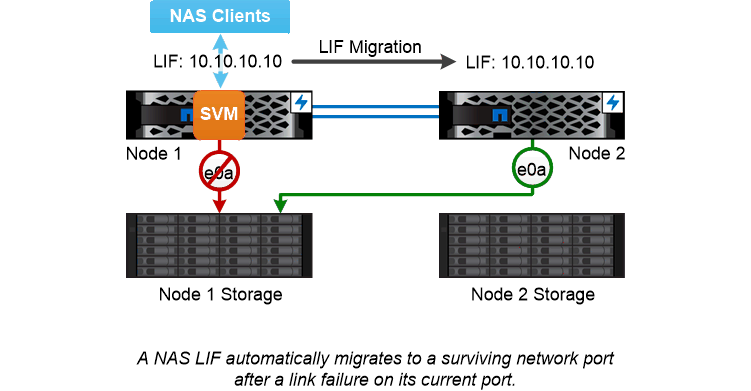NAS path failover
 Suggest changes
Suggest changes


A NAS LIF automatically migrates to a surviving network port after a link failure on its current port. The port to which the LIF migrates must be a member of the failover group for the LIF. The failover group policy narrows the failover targets for a data LIF to ports on the node that owns the data and its HA partner.
For administrative convenience, ONTAP creates a failover group for each broadcast domain in the network architecture. Broadcast domains group ports that belong to the same layer 2 network. If you are using VLANs, for example, to segregate traffic by department (Engineering, Marketing, Finance, and so on), each VLAN defines a separate broadcast domain. The failover group associated with the broadcast domain is automatically updated each time you add or remove a broadcast domain port.
It is almost always a good idea to use a broadcast domain to define a failover group to ensure that the failover group remains current. Occasionally, however, you may want to define a failover group that isn't associated with a broadcast domain. For example, you may want LIFs to fail over only to ports in a subset of the ports defined in the broadcast domain.

Subnets A subnet reserves a block of IP addresses in a broadcast domain. These addresses belong to the same layer 3 network and are allocated to ports in the broadcast domain when you create a LIF. It is usually easier and less error-prone to specify a subnet name when you define a LIF address than it is to specify an IP address and network mask. |


